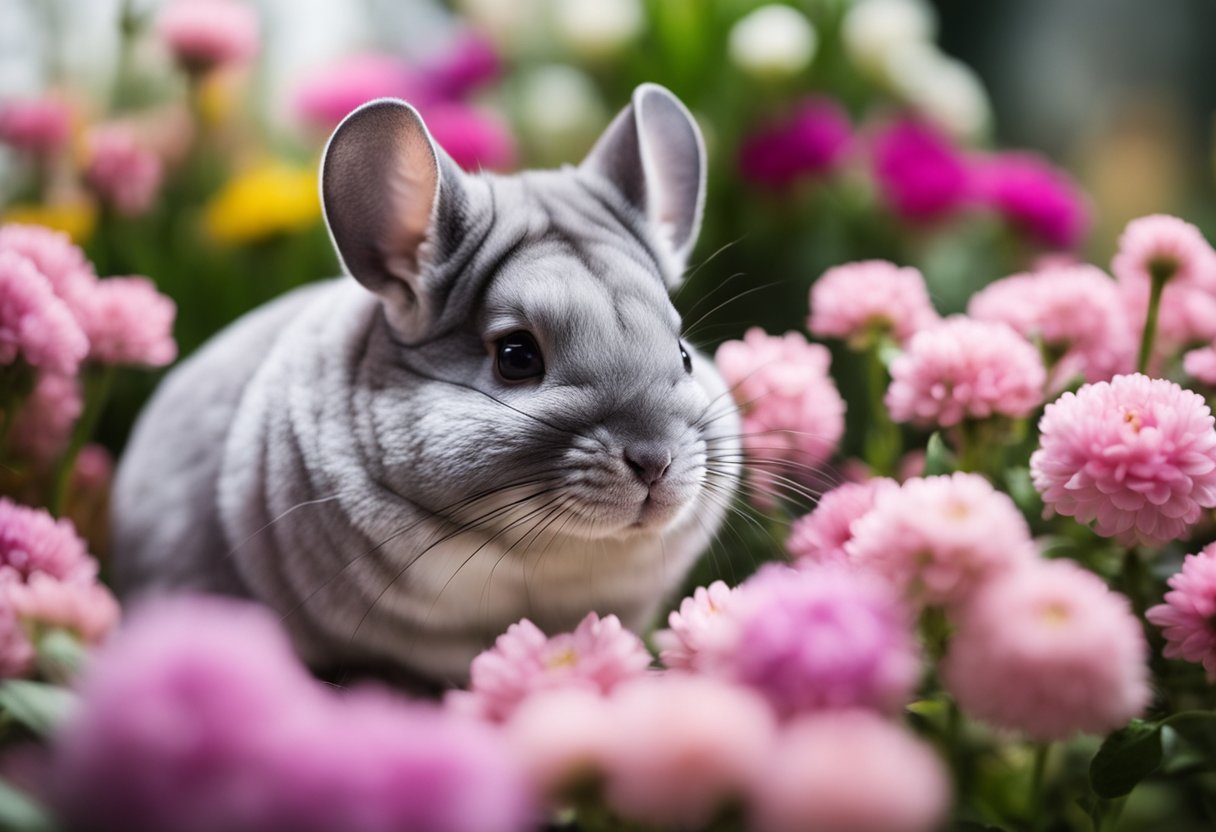Are Chinchillas Smelly? Understanding Their Hygiene and Care Needs
When considering a chinchilla as a pet, you might wonder about their cleanliness and whether they have a smell. Chinchillas are generally odorless, making them great companions for those concerned about pet smells. Like any pet, their environment plays a crucial role in managing odors. Keeping their living area clean is essential to prevent any unwanted scents.

Chinchillas are clean animals by nature, but certain factors can lead to odors if not addressed. Regular cleaning of their cage, a balanced diet, and good health practices are key to keeping your chinchilla smelling fresh. You’ll find that by maintaining proper hygiene, both you and your chinchilla can enjoy a pleasant living environment.
Key Takeaways
- Chinchillas are generally odorless pets when cared for properly.
- Regular cleaning and good hygiene practices are essential for odor management.
- A balanced diet and health check-ups contribute to a healthy, happy chinchilla.
Chinchilla Basics

Chinchillas are unique pets with specific needs and characteristics that influence their care and behavior. Understanding their natural habitat and physical traits can help you better manage their environment and hygiene.
Natural Habitat and Behavior
Chinchillas originate from the Andes Mountains in South America. In the wild, they inhabit rocky areas where they can hide from predators. This natural environment influences their behavior greatly.
They are social animals, often living in groups. In the wild, they engage in activities like grooming and dust bathing, which keeps their fur clean and reduces odors.
Chinchillas are crepuscular, meaning they are most active during dawn and dusk. Understanding their behaviors can aid in providing a suitable habitat at home. Providing enrichment such as tunnels or chew toys mimics their natural environment and keeps them happy.
Physical Characteristics Relevant to Smell
Chinchillas have dense fur, which serves as insulation in their cold mountainous habitat. This fur can trap dirt and oils, so regular grooming is essential to maintain cleanliness and minimize odors.
Their droppings are typically small, hard, and dry, which results in less smell when compared to other pets. It is essential to clean their cages regularly to prevent any build-up that could lead to odor issues.
Additionally, their urine is generally odorless, which is another factor that contributes to their cleanliness as pets. Keeping their living space tidy will ensure that they remain healthy and free from any unpleasant smells.
Odor Factors and Management

Chinchilla odor management relies on several key aspects, including their diet, hygiene practices, and the cleanliness of their living space. Addressing these factors can help you maintain a pleasant environment for both you and your pet.
Diet and Digestive Health
What your chinchilla eats greatly affects its odor. A balanced diet is essential. High-protein or high-fat foods can lead to stronger-smelling urine and feces.
Recommended Diet:
- Hay: Good quality hay should make up the bulk of their diet.
- Pellets: Use small amounts of specially formulated pellets.
- Fresh Vegetables: Offer them in moderation.
Monitor their digestion. Any changes in stool appearance or smell could indicate health issues. Regular veterinary check-ups will ensure your chinchilla remains healthy and odor-free.
Hygiene and Dust Baths
Chinchillas need regular grooming to manage their natural oils and fur. Dust baths are a crucial part of this routine.
Dust Bath Tips:
- Frequency: Offer dust baths 2-3 times a week.
- Type of Dust: Use chinchilla-specific dust for the best results.
Grooming helps reduce the buildup of oils that can lead to odor. When bathing, keep an eye on your chinchilla’s behavior. If it resists bathing or seems uncomfortable, check with a vet.
Housing Cleanliness
Keeping your chinchilla’s cage clean is vital for controlling odor. A dirty cage can quickly lead to unpleasant smells.
Cleaning Routine:
- Bedding: Change bedding every week or sooner if it gets soiled.
- Spot Clean: Remove waste daily to prevent odors.
- Wash Accessories: Clean food dishes and water bottles weekly.
Ensure proper ventilation in the cage. Fresh air helps reduce odors and keeps your chinchilla healthy. Regular maintenance will create a fresh-smelling environment for both you and your pet.
Resources

If you’re looking for more information about chinchilla care and odor management, several resources can help you. Here’s a list of useful links:
- Chinchilla Odor Management: Understand how to manage odor effectively with tips on cleanliness and health. Check out this guide.
- Chinchilla Smell Facts: Discover why chinchillas can be odorless and when smells may indicate health issues. Visit this article.
- Healthy Chinchilla Habits: Learn how diet and cage maintenance influence odor. You can find practical advice here.
- Caging and Cleaning: Explore effective cleaning tips to ensure your chinchilla has a fresh environment. Read more here.
- Understanding Chinchilla Scent Glands: Get information about their scent glands and how they can affect odor. For detailed insight, view this informative piece.
Utilizing these resources can help you maintain a clean and healthy space for your chinchilla, ensuring they are happy and odor-free.
Frequently Asked Questions

When considering whether chinchillas are smelly, it’s important to address common concerns about their odor. Understanding these factors can help you provide better care for your chinchilla and keep your home smelling fresh.
Do chinchillas produce a strong odor?
Chinchillas have a mild natural scent that most owners find manageable. They are not known for producing a strong odor unless there are issues with their cage cleanliness or health.
Can the smell of chinchilla urine be a concern for pet owners?
Yes, chinchilla urine can have a strong ammonia smell, especially if their enclosure is not cleaned regularly. This odor may become a concern if allowed to build up over time.
How does the cleanliness of chinchillas compare to other pets?
Chinchillas are generally cleaner than many other pets, such as dogs or cats. They do not produce as much waste or require bathing, which can help reduce odor.
What are the maintenance requirements to manage odor in chinchilla enclosures?
To manage odor effectively, you need to clean their enclosure regularly. It’s important to replace soiled bedding and ensure that food and water dishes are cleaned daily.
How often do chinchillas require cleaning to remain odor-free?
Chinchillas should have their cages cleaned at least once a week. If there are multiple chinchillas or the enclosure is particularly dirty, more frequent cleaning may be necessary.
Does chinchilla behavior affect how much they smell?
Yes, chinchilla behavior can impact odor levels. They may smell more if they are stressed or if their cage is overcrowded, leading to more waste production and odor.

